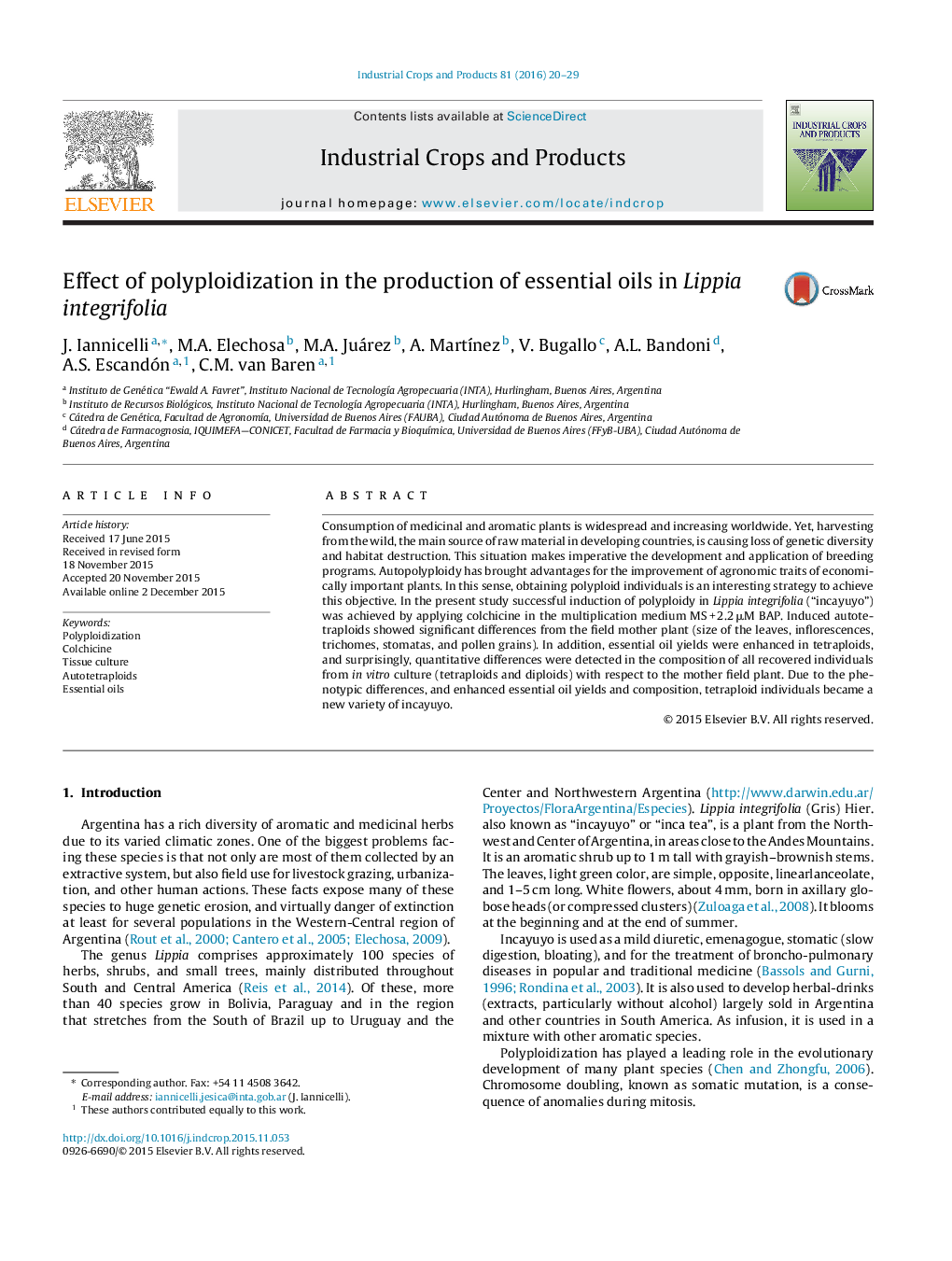| کد مقاله | کد نشریه | سال انتشار | مقاله انگلیسی | نسخه تمام متن |
|---|---|---|---|---|
| 4512432 | 1624829 | 2016 | 10 صفحه PDF | دانلود رایگان |

• A protocol for the in vitro polyploidization of Lippia integrifolia is proposed.
• The tetraploids showed larger organ sizes and higher production of essential oils.
• Tetraploid plants are a promising material to be registered as a variety of incayuyo.
• Polyploidization contributing to reduce wild collection pressure on medicinal plants.
Consumption of medicinal and aromatic plants is widespread and increasing worldwide. Yet, harvesting from the wild, the main source of raw material in developing countries, is causing loss of genetic diversity and habitat destruction. This situation makes imperative the development and application of breeding programs. Autopolyploidy has brought advantages for the improvement of agronomic traits of economically important plants. In this sense, obtaining polyploid individuals is an interesting strategy to achieve this objective. In the present study successful induction of polyploidy in Lippia integrifolia (“incayuyo”) was achieved by applying colchicine in the multiplication medium MS + 2.2 μM BAP. Induced autotetraploids showed significant differences from the field mother plant (size of the leaves, inflorescences, trichomes, stomatas, and pollen grains). In addition, essential oil yields were enhanced in tetraploids, and surprisingly, quantitative differences were detected in the composition of all recovered individuals from in vitro culture (tetraploids and diploids) with respect to the mother field plant. Due to the phenotypic differences, and enhanced essential oil yields and composition, tetraploid individuals became a new variety of incayuyo.
Journal: Industrial Crops and Products - Volume 81, March 2016, Pages 20–29